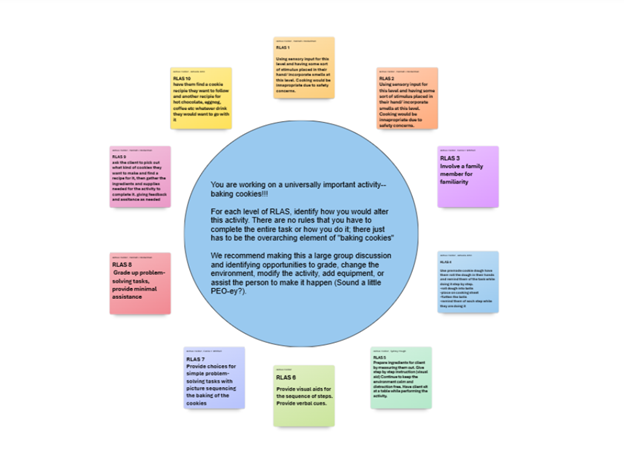Educators have sought to understand why some students persist in overcoming challenges, while others do not. We present an exploration of growth mindset initiatives as factors that promote persistence and student success in online courses. This exploratory review focuses on the relevant literature, includes practical suggestions for classroom applications in online courses, and indicates avenues for future research.
Online college courses have surged post-COVID-19, but attrition rates remain high. Research highlights resilience, course design, institutional support, and faculty interaction as key factors in student persistence. Yang, Baldwin, and Snelson (2017) found that personal goals, community, family support, and time management were crucial for graduate students, while first-year students had different needs. Despite challenges, universities continue expanding online programs. Building a sense of community and supporting a positive mindset can help students manage stress and persist. Colleges are encouraged to integrate mindset and coping strategies into curricula to support online learners’ success.
This review examines how a growth mindset helps students persist despite challenges. Practical strategies are discussed to support students in managing stress and completing online classes. Research highlights the role of mindset, grit, and resilience in achieving long-term goals, though further study is needed. A growth mindset acts as a protective factor during stressful times, fostering confidence and adaptability. Crum et al. (2017) found that viewing stress as enhancing, not debilitating, improves positive affect and cognitive flexibility.
Literature
Selecting credible sources requires considering peer-review status, impact factor, publication date, and current trends. This exploratory review examined scholarly articles for accuracy, credibility, and methodological soundness, using databases like PubMed, Google Scholar, ABI Inform, and EBSCO. Including related works provides context, helping readers understand the connection between a growth mindset and college student persistence.
Mindset
Students with a growth mindset believe intelligence can improve through effort rather than innate talent (Dweck 2000, 2017; Hudig et al. 2022; Tirri and Kujala 2016; Yeager and Walton 2011). Dweck (2006) established a clear link between mindset and achievement, emphasizing that a growth mindset requires support from educators to develop necessary skills. Faculty can enhance motivation by reinforcing mastery, normalizing struggles, and providing resources (Dweck and Leggett 1988; Dweck 2017).
A fixed mindset is the belief that intelligence is unchangeable, leading to feelings of inadequacy and limited problem-solving abilities (Jegathesan et al. 2016; King 2017; Lee et al. 2018; O’Keefe et al. 2018). Karwowski (2014) found that a fixed mindset correlates with lower problem-solving skills. According to Yeager et al. (2019, 364), “the brain is like a muscle that grows stronger and smarter when it undergoes rigorous learning experiences.” This provides a relevant picture of the importance of a growth mindset.
Theoretical
A growth mindset, linked to student persistence, enables learners to set realistic goals and overcome challenges, viewing intelligence as malleable through effort rather than innate talent (Dweck 2006). This mindset encourages risk-taking and learning from mistakes rather than fearing failure. Research shows that resilience, grit, and a growth mindset positively impact learning (Calo et al. 2019). Fostering a growth mindset in college supports persistence by promoting adaptive, exploratory behaviors. A growth mindset can be a protective factor that enables college students to succeed during their educational journeys.
Authors’ Perspectives & Practical Classroom Applications
This exploration was an attempt to determine how growth mindset can help students persist in college online classes. Online classroom implications are significant. Regardless of what traits students bring to the classroom, instructors have an opportunity to facilitate and promote a growth mindset in their interactions with students. By focusing on opportunities to embrace change, normalize struggles, foster growth, and improve processes, instructors can help students to feel motivated, empowered, and able to overcome obstacles.
Instructors should provide resources such as tips on approaching tasks or advice about searching for solutions when stuck. This helps foster independence by teaching problem-solving skills that can be applied more broadly throughout life’s challenges and generalized outside of academia. Additionally, open communication between students and instructors allows for questions and comments without judgment. Students feel safe expressing themselves, leading to greater understanding and acceptance that struggle is part of the growth process, fostering a culture of belonging and inclusion in the classroom. Online instructors must be mindful as they compose feedback to promote a sense of purpose and potential growth.
Instructors promote growth mindset by helping students find meaningful value in what they are doing. They can encourage students to overcome obstacles and be resourceful. Ultimately, instructors can steer students away from the tendency to accept a fixed mindset and be willing to embrace challenges as opportunities to expand student thinking and accept that difficulties are part of learning. Instructors should emphasize that mistakes are necessary to achieve success. Sharing personal struggles and stories allows students to see that everyone has challenges in college, even their instructors. Acknowledging setbacks as opportunities instead of focusing on forms of perceived punishment reinforces the idea that effort will ultimately pay off with tangible results down the line, even if it does not happen immediately.
Recommendations for Future Research
Future research should examine other variables to determine the impact of creating a growth mindset culture in the classroom. Exploring how faculty mindsets mediate students’ success has been demonstrated in middle school (Schmidt et al. 2015). Haimovitz and Dweck concluded, “We also know little about how children themselves may affect socializers’ theories and behaviors. Examining these bidirectional processes will benefit our understanding of how a culture of growth can be developed and sustained” (2017, 1856). Little is known about the bidirectional processes of online instructors with their adult students.
Conclusions and Limitations
Since this review was exploratory, the findings were not generalized. The existing research may not represent all college students; that was not the goal. However, scholarly, primary, peer-reviewed studies were carefully selected for methodological soundness, validity, strength, and currency. Although research on growth mindset has been studied across domains and countries, few studies have included faculty mindsets. Another limitation is the lack of statistical strength.
Another limitation of this review is that past research may or may not apply to future students. Recent developments regarding COVID-19 and how it may have impacted students in online college education are just beginning to appear in scholarly databases. Many students who prefer traditional classrooms may opt to enroll in online programs because they view such programs as safer, healthier alternatives. Researchers need to learn how this change in a student’s sense of “normal” impacts the mindset of future students, at least for the foreseeable future.
Instructors forced into online education may have brought new ideas and/or confusion that could impact how online students were taught. It can be argued that there is limited or no research that has studied the impacts on students when the instructor and the students find themselves in an unexpected situation, like the unexpected worldwide pandemic.
Technology has allowed online education to grow and expand in ways that were not expected 20 years ago. Students start college with great expectations, and many of those expectations have been changed by the reality of college in an online environment. This exploratory review has presented some considerations for instructors to encourage students to develop and sustain a growth mindset and remain in their academic program. This may provide ways to help students grow as individuals while addressing the multiple demands of work and family since the COVID-19 pandemic and beyond.
Dora C.D. Finamore joined Purdue University Global in 2004 and currently serves as a full-time instructor in the School and Business and Information Technology. She has 25 years’ experience in private practice as a Licensed Clinical Mental Health Counselor. Dora earned her EdD in Counseling Psychology from the University of Sarasota and has been a professor of Business and Psychology for 21 years. She serves as a contributing editor for Journal of Education and Learning. Dora’s current research interests are in the areas of motivation, learning strategies, LGBTQ+ cultures, belonging, resilience, and growth and fixed mindset in business and education.
E. Valerie Hewitt joined Purdue University Global, in 2007 and currently is an adjunct instructor in the School of Business and Information Technology. She has over 30 years’ combined online and traditional classroom teaching experience. Valerie holds a Master’s Degree in Education from Trinity University in San Antonio, Texas, and a Master’s Degree in Higher Education with a secondary in psychology from Kaplan University. Her current research interests are in the areas of the retention of first-year online students and early engagement strategies.
Loretta “Laurie” A. Millam joined Purdue University Global in 2002 and currently serves as a Department Chair in the School of Business and Management. She has over 25 years’ combined experience in education. Prior to entering the education field, Loretta worked in Business Management for over 11 years. Loretta holds an MBA from St. Ambrose University and an EdS from Northcentral University. Loretta’s current research interests are in the areas of first-term student retention and early engagement learning strategies.
Michelle M. Reinhardt joined Purdue University Global as a full-time instructor in 2003 and currently serves as a course lead and faculty mentor in the school of Business and Information Technology. Michelle has over 25 years of combined online and traditional classroom teaching experience. She has designed courses, served on various college and university committees, and conducted online faculty workshops as well. Michelle holds a Master’s Degree in Communication Arts/English from Western Colorado University. Her current research interests are in the areas of entrepreneurship, motivation, and student learning and engagement.
Linda S. Watson joined Purdue University Global in 2006 and currently teaches First Term Experience classes in the School of Business and Information Technology. Linda has an MBA from Baker College with a double major in Leadership Studies and Human Resource Management. Her current research interests include the areas of student success and engagement, particularly for first-term students.
References
Calo, Marlena, Casey Peiris, Lucy Chipchase, Felicity Blackstock, and Belinda Judd. 2019. “Grit, Resilience and Mindset in Health Students.” The Clinical Teacher 16(4), 317-322. https://doi.org/10.1111/tct.13056.
Crum, Alia J., Modupe Akinola, Ashley Martin, and Sean Fath. 2017. “The Role of Stress Mindset in Shaping Cognitive, Emotional, and Physiological Responses to Challenging and Threatening Stress.” Anxiety, Stress, & Coping 30 (4): 379–95. doi:10.1080/10615806.2016.1275585.
Dweck, Carol S. 2000. “Self-theories: Their Role in Motivation, Personality, and Development.” Psychology Press.
Dweck, Carol S. 2006. “Mindset: The New Psychology of Success.” Random House.
Dweck, Carol S. 2017. “From Needs to Goals and Representations: Foundations for a Unified Theory of Motivation, Personality, and Development.” Psychological Review 124(6), 689–719. https://doi.org/10.1037/rev0000082.
Dweck, Carol S., and Ellen L. Leggett. 1988. “A Social-cognitive Approach to Motivation and Personality.” Psychological Review 95(2), 256–273. https://doi.org/10.1037/0033-295X.95.2.256.
Haimovitz, Kyla., and Carol S. Dweck. 2017. “The Origins of Children’s Growth and Fixed Mindsets: New Research and a New Proposal.” Child Development 88(6), 1849–1859. https://doi.org/10.1111/cdev.12955.
Hudig, Job, Ad W. A. Scheepers, Michaéla C. Schippers, and Guus Smeets. 2022. “Motivational Mindsets, Mindset Churn and Academic Performance: The Role of a Goal-setting Intervention and Purpose in Life.” Current Psychology 42 (27): 23349–68. https://doi.org/10.1007/s12144-022-03462-8.
Jegathesan, Mithila, Yaffa M. Vitberg, and Martin V. Pusic. 2016. “A Survey of Mindset Theories of Intelligence and Medical Error Self-reporting among Pediatric House Staff and Faculty.” BMC Medical Education 16, 58. https://doi.org/10.1186/s12909-016-0574-8.
Karwowski, Maciej. 2014. “Creative Mindsets: Measurement, Correlates, Consequences.” Psychology of Aesthetics, Creativity, and the Arts 8(1), 62–70. https://doi.org/10.1037/a0034898.
King, Ronnel B. 2017. “A Fixed Mindset Leads to Negative Affect: The Relations between Implicit Theories of Intelligence and Subjective Well-being.” Zeitschrift Für Psychologie 225(2), 137–145. https://doi.org/10.1027/2151-2604/a000290.
Lee, C. Christopher, Jacqueline Trahan, Peter Maltby, Venessa Hemraj, and Heidi Hughes. 2018. “Mindset, Job Satisfaction and Employee Engagement at Workplace: Preliminary Results.” Proceedings for the Northeast Region Decision Sciences Institute (NEDSI) 640–659. https://research.ebsco.com/linkprocessor/plink?id=32621573-85d0-36bf-9aaa-7caf0d256b8b.
O’Keefe, Paul A., Carol Dweck, and Greg Walton. (2018). “Having a Growth Mindset makes it Easier to Develop New Interests.” Harvard Business Review Digital Articles 8–13. https://hbr.org/2018/09/having-a-growth-mindset-makes-it-easier-to-develop-new-interests
Schmidt, Jennifer A., Lee Shumow, and Hayal Kackar-Cam. 2015. “Exploring Teacher Effects for Mindset Intervention Outcomes in Seventh-Grade Science Classes.” Middle Grades Research Journal 10 (2): 17–32. https://research.ebsco.com/linkprocessor/plink?id=4d677331-010f-3bc1-8e5b-78d2973d7bc5.
Tirri, Kirsi and Teija Kujala. 2016. ”Students’ Mindsets for Learning and their Neural Underpinnings.” Psychology 7(9), 1231-1239. https://doi.org/10.4236/psych.2016.79125.
Yang, Dazhi, Sally Baldwin, and Chareen Snelson. 2017. “Persistence Factors Revealed: Students’ Reflections on Completing a Fully Online Program.” Distance Education 38 (1): 23–36. doi:10.1080/01587919.2017.1299561.
Yeager, David S., Paul Hanselman, Gregory M. Walton, et al. 2019. “A National Experiment Reveals where a Growth Mindset Improves Achievement.” Nature 573, 364–369. https://doi.org/10.1038/s41586-019-1466-y.
Yeager, David S., and Gregory M. Walton. (2011). “Social-psychological Interventions in Education: They’re not Magic.” Review of Educational Research 81(2), 267–301.







